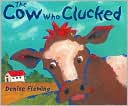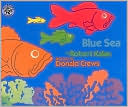
Submitted by Ellen Abramson, Fairfax County (VA) Public Library System
Your Custom Text Here

Submitted by Ellen Abramson, Fairfax County (VA) Public Library System
Song: The Bear Went Over the MountainThe bear went over the mountain, the bear went over the mountain The bear went over the mountain, to see what he could see. And what do you think he saw? And what do you think he saw? He saw a goat in a boat, he saw a goat in a boat. He saw a goat in a boat, That is what he saw.
Go through the song.
Early Litearcy Aside--Example: Rhyming is an important part of phonological awareness. It helps children break down words into smaller sounds and identify similar sounds in different words.This skill will help them when they sound out words to learn to read. Re-sing the song putting up different felt figures (skunk in a trunk) and allow the children to tell you what they see.
Early Literacy Aside--Empower: You can sing this song with any rhyming words. Work together with your child to create another verse. Don't be afraid to use nonsense words! Submitted by Erin Rogers, Henrico County (VA) Public Library--Gayton Branch
 Early Literacy Aside--Empower: Nursery rhymes are important to do with your children, not only here in storytime, but at home as well. The rhyming and repetition of words helps your child develop the awareness of different word sounds. This helps develop their phonological awareness which is important for later sounding out words. Also, nursery rhymes are fun to sing and act out!
Submitted by Michelle Edwards, Gloucester Library (VA)
Early Literacy Aside--Empower: Nursery rhymes are important to do with your children, not only here in storytime, but at home as well. The rhyming and repetition of words helps your child develop the awareness of different word sounds. This helps develop their phonological awareness which is important for later sounding out words. Also, nursery rhymes are fun to sing and act out!
Submitted by Michelle Edwards, Gloucester Library (VA)

Feathered Friends Storytime Plan
Submitted by Donna Johnson, Sioux City (Northwest Library Service Area, Iowa) Public Library

Babies Everywhere! for Two and Three-Year-Olds Submitted by Debbie Stanton of Kalona (Southeast Iowa LSA) Public Library

Read the book Mouse Shapes by Ellen Walsh.
Early Literacy Aside--Example: As I read the book, you'll notice how we can combine talking about shapes as we also talk about what is happening in the story. Helping children see shapes is the beginning of letter knowledge.
Craft: Have various shapes cut out, the same ones used in the book. Each PERSON gets a blank sheet of paper. Using shapes, they make a picture. Encourage the adults to talk about all the shapes and also about what they are making with the shapes, both their own picture and their child's. The adult or child can write the child's name on their the paper and find some of the shapes in the letters.
Early Literacy Aside--Empower: Playing with shapes is one way to help your child see shapes in letters and to later identify the letters. For example, this is an N the first letter in your name. See how there is a triangle shape between the lines? You will notice many opportunities during your day to talk with your children about shapes.

Read the book Blue Sea by Robert Kalan. Use the flannel board to retell the story. You put up the pieces and have the participants retell the story as you put up the pieces. You may say a few words to prompt them.
Early Literacy Aside--Example: Giving children an aid, like the flannel board pieces, helps them remember the story and the order. This helps them develop their narrative skills which both helps them later understand what they will read and helps them understand how stories work.
At the end of storytime, offer a handout (see below)
Early Literacy Aside--Empower: Today I have a handout for Blue Sea for you. You and your children can color and cut out the pieces and then retell the story together. Remember that telling stories will help children later in school when they have to write their own stories.
Patterns for flannel board pieces
Handout for retelling at home
Submitted by Saroj Ghoting

Early Literacy Aside--Empower: Today in storytime we shared the story of The Three Little Pigs and the children helped me blow down the straw and stick houses, but not the brick one. Giving your child props to retell the story helps develop narrative skills. This skill helps children later understand what they read. So, I am giving you a handout with instructions on how to make the origami house I used. [Demonstrate.] When you do this activity at home, have fun retelling the story together.
Three Pigs Origami House pattern
Submitted by Saroj Ghoting
Sing Roll Your Hands from Toddlers on Parade by Carol HammettWords: Roll, roll, roll your hands fast as fast can be. Do it now, let me see Do it now with me.
Tap, tap, tap your feet Shake, shake, shake your hips Roll, roll, roll your hands [Repeat one or two times all together. Clap together when done.]
Early Literacy Aside--Empower: This is a good rhyme to do as you are bathing or diapering your child. Use different parts of the body and words for different actions to help increase your child's vocabulary. Even though your baby does not understand everything you say, it is important for her to hear you say many words. The wider variety of words that your child hears, the larger her vocabulary will be, and the more easily they will later be able to read.
Read the book Blue Sea by Robert Kalan.
Early Literacy Aside--Example: Blue Sea uses the concept of size. You can build your child's vocabulary by talking about different words related to size, like big, bigger, biggest which compare sizes. Also offer words like huge, gigantic, humongous.
Early Literacy Aside--Empower: There are many opportunities throughout the day where you can add new words related to size, such as thin, fat, hard, soft, etc. Exposing your children to new words builds their vocabulary which will help them later understand what they read.
